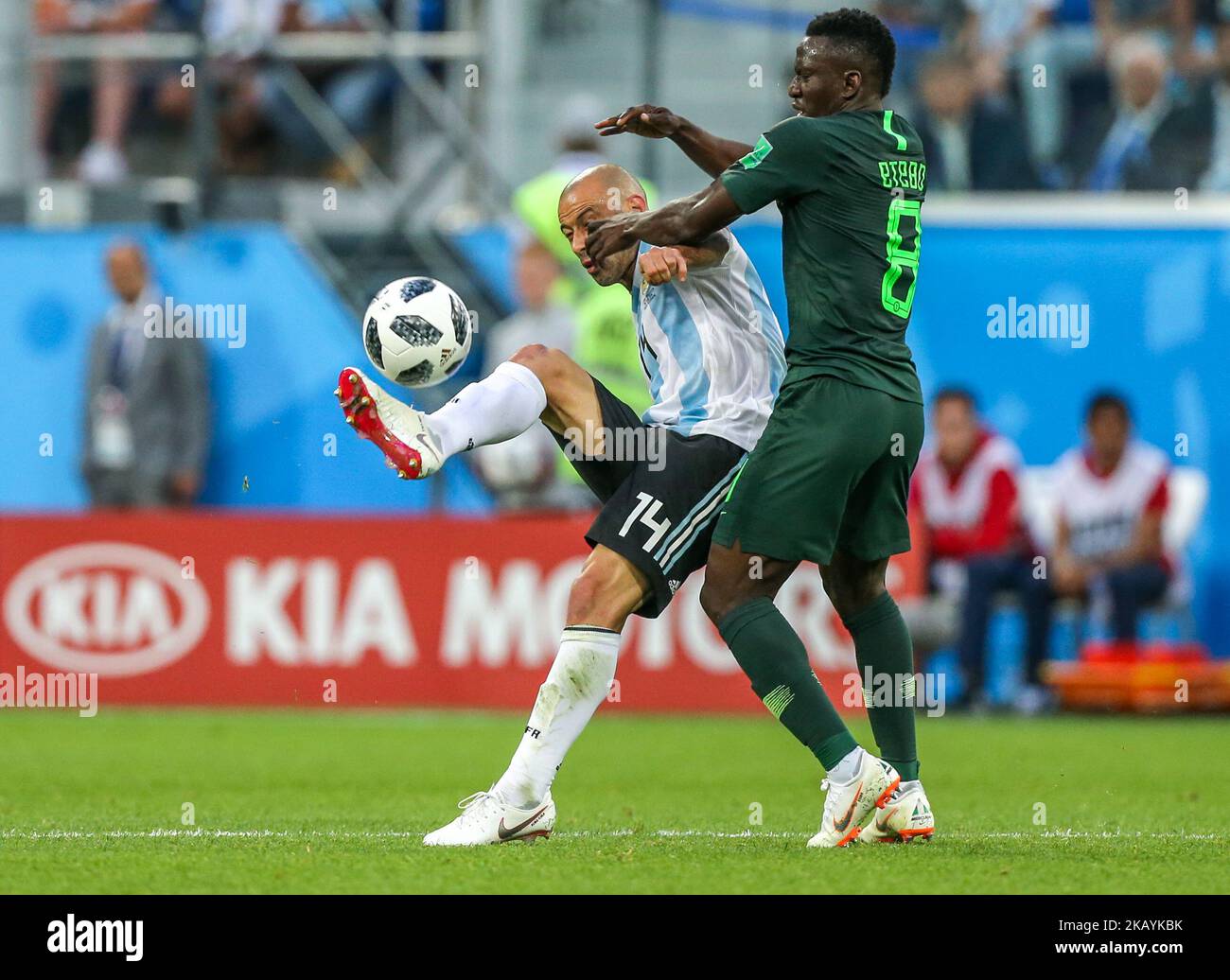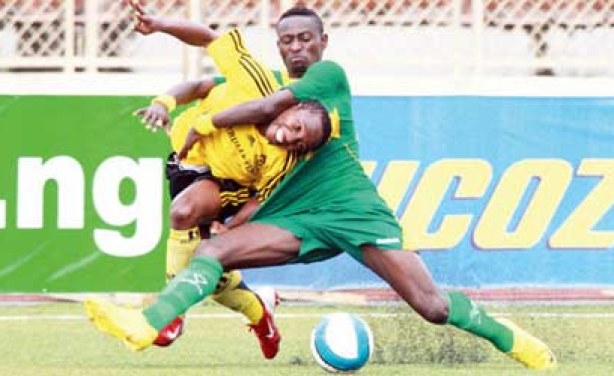How Started Soccer To Nigeria? The Origins Of Football Within Nigeria
페이지 정보
작성자 Eddy 작성일 25-01-01 04:46 조회 357 댓글 0본문
A massive 67% of Nigerians watch Football, which shows how much the sport affects nigerian youths culture. Football's journey in Nigeria began over 100 years dates back to the early, forming the nation's sporting landscape.
Football in Nigeria dates back to the early 1900s. British colonisers brought the sport to the country in 1904. The very first recorded football match happened that same year, kicking off Nigeria's rich footballing history.
By 1950, Football had become Nigeria's nationwide video game. Its fast increase resulted in numerous clubs and associations forming in the early 1900s. This development increased Nigerian pride and assisted influence political flexibility movements.
Nigeria's football legacy now reaches beyond its borders. Over the years, the country has actually produced world-class talent, and Nigerian youth groups have won the FIFA U-17 World Cup five times.
The Super Eagles, Nigeria's national team, are a force in African Football. They typically receive considerable competitions and make their mark internationally.
The British Colonial Introduction of Football to Nigeria
Football showed up in Nigeria during the British colonial age. It rapidly caught the hearts of residents, marking the start of a rich footballing tradition in the country.
The First Football Match in 1904
The first football match in Nigeria occurred in June 1904. It was between Hope Waddell Training Institution and the crew of HMS Thistle. The Nigerian group won 3-2, stimulating an across the country enthusiasm for the sport.

Hope Waddell Training Institution vs HMS Thistle
I hope the Waddell Training Institution in Calabar played an essential role in early Nigerian Football. Their success over HMS Thistle's crew showed the talent of Nigerian gamers. This match set the stage for Football's growth in the country.

Early Football Club Formation (1906-1932)
After the 1904 match, Football's popularity soared. From 1906 onwards, early football clubs started forming, and this grassroots movement spread out the sport throughout Nigeria.
The Lagos District Amateur Football Association (LDAFA) was developed in 1932. The LDAFA marked the start of organised Football in Nigeria and paved the way for the sport's future success nationally and internationally.
Who Introduced Football in Nigeria
Football showed up in Nigeria in the early 20th century. British colonisers brought this precious sport to the West African country. It quickly ended up being an enthusiasm that shaped Nigeria's sporting landscape for generations.
Function of British Colonisers
British colonisers played an essential role in Nigeria's football history. The first taped match occurred in June 1904. Hope Waddell Training Institution dealt with the team of HMS Thistle.
The Nigerian team won 3-2. This victory marked the beginning of a rich football legacy in the country.
Development of First Football Association
The Lagos District Amateur Football Association (LDAFA) was established in 1932. It prepared for organised Football in Nigeria, which paved the way for the Nigerian Football Association (NFA).

The NFA was founded in 1945. It became the national governing body for Football and oversaw its advancement across the nation.
Advancement of Local Football Culture
Football rapidly settled in Nigeria, becoming the national sport by 1946. Its ease of access and easy rules helped it spread quickly. Local communities embraced the game, forming their groups.
This grassroots enthusiasm laid the foundation for Nigeria's future success. The country's enthusiasm for Football grew, causing accomplishments on the international stage.
"Football ended up being more than just a sport; it developed into an essential Nigerian culture and identity component."
The British colonisers' introduction of Football triggered a sporting transformation in Nigeria. Football's journey mirrored the nation's development from the first match in 1904 to the formation of the NFA in 1945.
Today, Football remains an integral part of Nigerian life. It's a testament to the sport's enduring appeal and cultural significance in the country.
The Rise of Nigerian Football Administration
The Nigerian Football Association (NFA) was established in 1945. It played an important role in shaping Nigerian Football. In 1949, the NFA formed Nigeria's very first nationwide football group.
In 1959, Nigeria signed up with the Confederation of African Football (CAF), which allowed it to participate in continental tournaments. Nigeria likewise ended up being a FIFA member in 1960, signing up with the international football community.
The NFA, later on renamed the Nigeria Football Federation (NFF), organised national competitions. They created the Nigerian Premier League and the Federation Cup, which ended up being the highlights of domestic Football.
Football associations across Nigeria prospered under the NFF's guidance. They nurtured skill and promoted grassroots development. Expert Football began in 1990 with sixteen club sides getting involved.
"Our mission is to revive football development at the nationwide level and repackage the league in line with global finest practices," mentions the Nigeria National League.
The Premier League was executed in 2003. This relocation aimed to enhance domestic football requirements and bring in more viewers and sponsors to national competitions.
Nnamdi Azikiwe's Impact on Nigerian Football
Nnamdi Azikiwe, born in 1904 in Zungeru, Northern Nigeria, left an indelible mark on Nigerian Football. His impact shaped the country's sporting landscape. Azikiwe's enthusiasm for sports originated from his varied experiences and education abroad.
Facility of Zik's Athletic Club
In 1938, Azikiwe established Zik's Athletic Club (ZAC) in Lagos. This club became a symbol of African self-determination. ZAC played a vital role in developing nigerian youths Football.
It provided a platform for young professional football league athletes to showcase their abilities. The club promoted regional skill and fostered a sense of national pride.
The West African Pilot's Influence
Azikiwe's newspaper, the West African Pilot, played a significant role in popularising Football throughout Nigeria. It thoroughly covered local matches, group news, and gamer profiles. This media attention assisted grow the sport's fan base.
Football as a Tool for Independence
Azikiwe saw Football's potential as a unifying force in the independence motion. He utilized the sport to break down ethnic barriers, and Football became a symbol of Nigerian unity through his advocacy.

Azikiwe's efforts connected Football to nationalism, contributing significantly to the sport's growth and shaping its function in contemporary Nigeria.
"Football is not just a video game; it's a powerful nationwide unity and identity tool."
Nigeria's Journey to International Football Recognition
Nigeria's football journey took a considerable leap forward in 1960. The nation got FIFA membership, marking its entry into international Football. This milestone accompanied Nigeria's self-reliance from British rule.
FIFA Membership and First International Match
Nigeria's first worldwide match happened on 8 October 1949. They faced Sierra Leone and won 2-0 in a historical encounter. This success sparked interest for Football throughout the country.
Early Continental Competitions
Nigeria debuted in the Africa Cup of Nations in 1963. The competition, hosted by Ghana, saw Nigeria facing difficult challengers. These experiences showed valuable for the group's development.
nigeria professional football league's determination paid off in 1973. They clinched gold at the All-Africa Games, marking their very first significant continental success. 1976, they secured bronze at the Africa Cup of Nations in Ethiopia.

Nigeria's football expertise grew in the 1970s. In 1978, they duplicated their bronze medal feat in Ghana. 1980, Nigeria hosted and won its first Africa Cup of Nations title.
Development of Nigerian Football Governance
Nigerian football governance has seen substantial changes and challenges since 1945. The Nigeria Football Federation has actually formed the country's football landscape, and its journey has actually been complicated and transformative.
From NFA to NFF
The Nigeria Football Association began in 1945. It became the Nigeria Football Federation in 2008. This change intended to modernise the organisation's structure.
In 2019, a costs was passed to acknowledge the NFF officially. It's still waiting for presidential approval.
Advancement of League Systems
The NFF manages 3 main leagues: the Nigerian Premier League, Amateur League, and Women's League. These competitions form the backbone of Nigerian Football.
They promote skill and promote the sport nationwide. However, difficulties like postponed seasons and location disputes continue.
National Team Formation
Nigeria's Super Eagles national team was formed in 1949. They've gotten approved for six FIFA World Cups and won 3 Africa Cup of Nations titles.
These achievements have actually boosted Nigeria's standing in international Football. The Super Eagles' success has actually put Nigeria on the international football map.
Nevertheless, Nigerian Football deals with ongoing obstacles. A research study revealed high levels of corruption in football governance. This impacts contract awards and player selection.
These issues highlight the requirement for reform. For the sport to thrive, transparency in the Nigerian football administration need to enhance.
Conclusion
Nigerian Football's legacy showcases the country's resilience and enthusiasm. It started in 1904 with Hope Waddell Training Institute dealing with HMS Thistle. Since then, Nigeria has become a powerhouse in African Football.
The sport's development shows the nation's journey from colonial guideline to self-reliance. It has actually promoted a sense of national identity and unity. Nigeria's worldwide football acknowledgment is undeniable.
The Super Eagles' gold medal at the 1996 Atlanta Olympics is an emphasize. Their outstanding FIFA World Cup performances likewise stand out. Nigeria has actually gotten approved for six World Cups.
In 1994, Nigeria achieved its greatest FIFA ranking of 5th, strengthening its put on the international phase. Nigerian Football continues to develop with promising prospects.
Talents like Ahmed Musa and Kelechi Iheanacho shine in top European leagues. This bodes well for the sport's advancement. The Nigeria Football Federation guides the video game's progress.
Football's sustaining tradition in Nigeria motivates upcoming generations and guarantees an amazing future for the sport. The gorgeous video game remains a source of nationwide pride and unity.
FREQUENTLY ASKED QUESTION
Who introduced football to Nigeria?
British colonisers brought Football to Nigeria in the early 1900s. The sport quickly ended up being popular and woven into Nigerian culture.
When was the first football match played in Nigeria?
The first taped football match in Nigeria happened in June 1904. Hope Waddell Training Institution played against the HMS Thistle crew. The Nigerian group won 3-2.
How did Football end up being Nigeria's national sport?
Football's basic guidelines and availability made it popular in Nigeria. By 1950, it was the nationwide game, inspiring pride and flexibility motions.
What function did Nnamdi Azikiwe play in Nigerian Football?
Nnamdi Azikiwe, Nigeria's very first President, was essential in establishing Football. He started Zik's Athletic Club in Lagos in 1938, and his newspaper, the West African Pilot, connected Football to the independence motion.
When did Nigeria sign up with FIFA?
Nigeria ended up being a FIFA member in 1960, the very same year it gained independence. This marked Nigeria's official entry into international football governance.
What is the Nigerian Football Federation?
The Nigerian Football Federation (NFF) governs Football in Nigeria. It progressed from the Nigerian Football Association, developed in 1945. The NFF organises nationwide leagues and competitors, consisting of the Premier League and Federation Cup.
What major successes has Nigerian Football accomplished?
Nigeria has actually played in 6 FIFA World Cups. The Super Eagles national team has actually won three African Cup of Nations. They've likewise won gold in the 2nd All-Africa games.
댓글목록 0
등록된 댓글이 없습니다.
